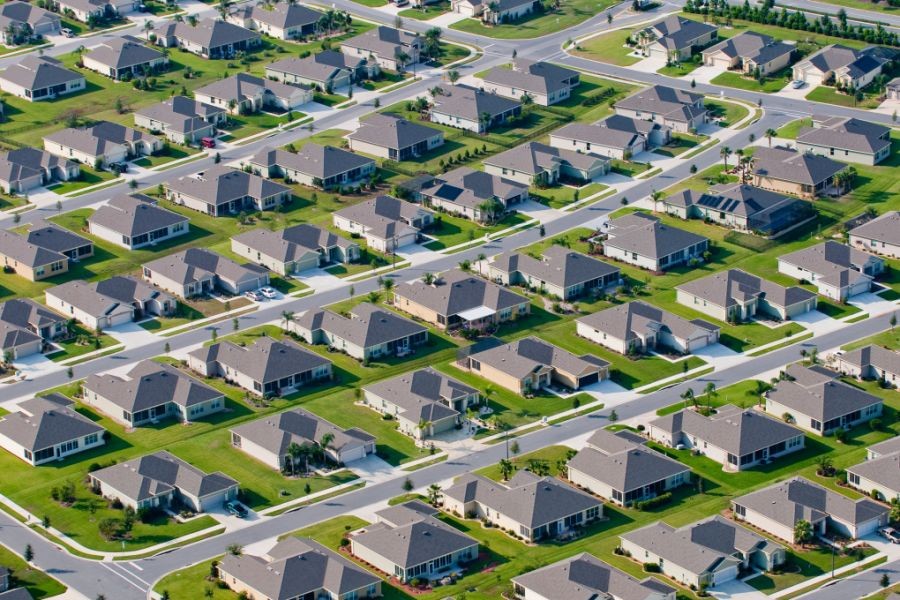New Zealand's picturesque provinces, known for their lush landscapes and vibrant local communities, are facing an unprecedented challenge—climate change. While urban centers like Auckland and Wellington have robust plans to combat its effects, the question looms: are the provinces ready to withstand the oncoming storm? As climate change accelerates, its impact will be felt in the provinces first, with implications for local economies, real estate, and industry trends.
Current Climate Change Impact on New Zealand Provinces
Recent data from Stats NZ indicates that rural areas are more susceptible to climate change due to their reliance on agriculture and tourism, industries heavily affected by weather patterns. For instance, Northland's droughts have led to a 20% decrease in agricultural output over the past five years, affecting both local farmers and the national economy.
Real-World Case Study: Northland's Agricultural Challenges
Problem:
Northland, a predominantly agricultural region, has faced severe droughts. This has led to water shortages, impacting crop yields and livestock health, subsequently decreasing agricultural productivity.
Action:
To combat this, local farmers adopted water-efficient practices and diversified crops to include drought-resistant varieties. The government also implemented water management policies, including rainwater harvesting incentives.
Result:
Over two years, water usage efficiency increased by 30%, and crop yields stabilized, demonstrating resilience against drought conditions.
Takeaway: This case underscores the necessity of adaptive agricultural practices in mitigating climate change impacts.
Data-Driven Analysis: Economic Implications
According to the Reserve Bank of New Zealand, climate change could reduce GDP by up to 5% over the next two decades if not adequately addressed. This forecast considers the impact of extreme weather on infrastructure, agriculture, and insurance costs. The real estate market in provinces may experience fluctuations as property values in at-risk areas decline, while safer zones see increased demand.
Contrasting Viewpoints: Is Climate Change a Threat or Opportunity?
The discourse around climate change often presents it as a looming threat. However, some experts argue it can be an opportunity for innovation and growth. For instance, sustainable farming and renewable energy sectors are poised for expansion.
Advocate View: Climate change offers a chance for technological advancements in sustainable practices, creating jobs and reducing carbon footprints.
Critic View: The immediate costs and resource allocation required to transition can be prohibitive, particularly for smaller provinces.
Middle Ground: Strategic government support and subsidies can help provinces balance the short-term costs with long-term benefits.
Pros vs. Cons Analysis: Investing in Provincial Real Estate
Pros:
- Lower Initial Costs: Provincial properties are generally more affordable than urban counterparts.
- Growth Potential: As urban areas become saturated, provincial regions present opportunities for expansion.
- Community Support: Investing in local businesses enhances community resilience and economic stability.
Cons:
- Climate Risks: Higher susceptibility to weather-related disruptions.
- Infrastructure Challenges: Limited access to advanced infrastructure and amenities.
- Market Volatility: Real estate values may fluctuate significantly due to climate impacts.
Common Myths & Mistakes in Provincial Real Estate Investment
Investing in provincial real estate is often shrouded in misconceptions. Let’s debunk some of these myths:
Myth: "Provincial real estate is always cheaper."
Reality: While initial costs may be lower, maintenance and insurance costs can be higher due to climate risks.
Myth: "Climate change won't affect property values."
Reality: Properties in high-risk areas may see a decline in value, as seen in the recent flooding events in Canterbury.
Myth: "Government policies will protect all investments."
Reality: While policies are in place, they cannot fully mitigate climate impacts without proactive local actions.
Future Trends & Predictions for New Zealand Provinces
According to a report by MBIE, New Zealand can expect increased investment in renewable energy and sustainable agriculture. By 2030, it is predicted that 50% of provincial energy needs will be met through renewables, driving economic growth and job creation. Moreover, real estate trends will likely favor eco-friendly developments, with a projected 30% increase in green building certifications.
Conclusion
As climate change continues to reshape New Zealand's provinces, it's crucial for stakeholders—investors, government, and local communities—to collaborate on sustainable solutions. The provinces can transform challenges into opportunities by adopting innovative practices and leveraging government support. Are you ready to invest in a resilient future? Share your thoughts and plans in the comments below!
People Also Ask (FAQ)
- How does climate change impact real estate in New Zealand?Climate change affects property values, especially in high-risk areas, leading to shifts in demand towards safer locales.
- What measures are being taken to protect New Zealand provinces?The government is implementing water management policies and promoting renewable energy to mitigate climate impacts.
- How can investors benefit from climate change in New Zealand?Investors can capitalize on growth in the renewable energy sector and eco-friendly real estate developments.
Related Search Queries
- Climate change impact on New Zealand real estate
- Renewable energy investment in NZ provinces
- Future of agriculture in New Zealand
- Sustainable farming practices in NZ
- Government policies on climate change NZ



































DeeLouise
6 months ago